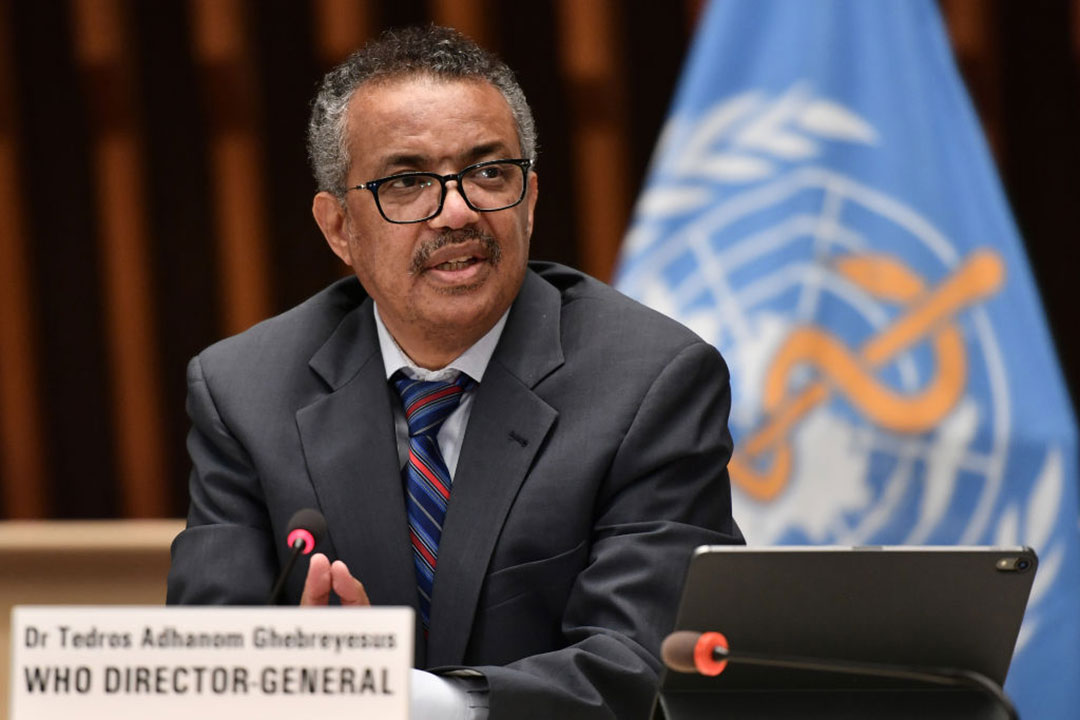WHO Director Wants More COVID-19 Data from China
ADF STAFF
The head of the World Health Organization (WHO) is calling for China to release more data that could help reveal the roots of the COVID-19 pandemic — a request the Chinese government is resisting.
WHO Director-General Dr. Tedros Adhanom Ghebreyesus recently repeated his call for China to release the raw data collected from the pandemic’s earliest victims. He said the data is an important piece of the next phase of the WHO’s investigation of COVID-19’s origins.
“Now we have designed the second phase of the study, and we are asking China to be transparent, open and cooperate especially on the information — raw data that we asked for in the early days of the pandemic,” Tedros said.
Tedros also advocated a deeper look at the inner workings of the Wuhan Institute of Virology, a potential source of the viral outbreak. He has called for an audit of the institute’s laboratories. Tedros said his own experience as a lab technician taught him that accidents happen.
“It’s common,” he said. “We need information — direct information — on what the situation of these labs was before and at the start of the pandemic.”
The Wuhan Institute has been accused of handling coronaviruses without the proper safety protocols. The institute is famous for studying the kind of coronaviruses found in bats similar to the one that causes COVID-19.
China has rejected the WHO’s plans for a second investigation, particularly one looking more closely at the Wuhan Institute.
Zeng Yixin, vice minister of the National Health Commission, rejected the call for further investigation into the possibility of a lab leak.
“It is impossible for us to accept such an origin-tracing plan,” he said in response to Tedros’ proposal for another investigation.
Since arising in central China at the end of 2019, COVID-19 has infected nearly 200 million people around the globe and killed more than 4 million.
At the beginning of 2021, the WHO sent an international team of investigators to Wuhan. The group visited the Huanan Wholesale Seafood Market where the first cluster of cases appeared in late 2019 and interviewed some early COVID-19 survivors.
The team also visited the Wuhan Institute. Ultimately, the team’s report, which was written in cooperation with Chinese authorities, tilted heavily toward the idea that COVID-19 originated from direct contact between animals and people.
A lab leak, the team concluded, was highly unlikely.
That assessment drew sharp criticism from scientists around the world, who demanded a more thorough accounting of the Wuhan Institute’s work. On July 15, Tedros described the team’s assessment as a “premature push” to rule out a lab leak.
Gene therapy researcher Alina Chan, who was among 18 scientists recommending a deeper look into a possible lab leak, praised Tedros’ position.
“It’s a sign that the WHO might be able to do more credible or balanced investigation,” she told Science magazine. She acknowledged, however, that China is unlikely to cooperate on an international audit of the Wuhan Institute’s labs.
China has been criticized for covering up the earliest evidence of the virus outbreak that became the COVID-19 pandemic. Government authorities went so far as to accuse Dr. Li Wenliang, who revealed the existence of the viral outbreak, of making false statements and spreading rumors. Li later died of COVID-19.
Chinese authorities refused the team’s request for raw data about the health of the earliest victims. China says providing the data to outside investigators would violate patients’ privacy.
At the WHO’s press conference on July 15, German Health Minister Jens Spahn called for more cooperation from China.
“We are very much interested in discovering where this virus came from, and I would also like to call on our Chinese colleagues, that we will be able to continue in this investigation to lead to scientific results,” Spahn said.


Comments are closed.